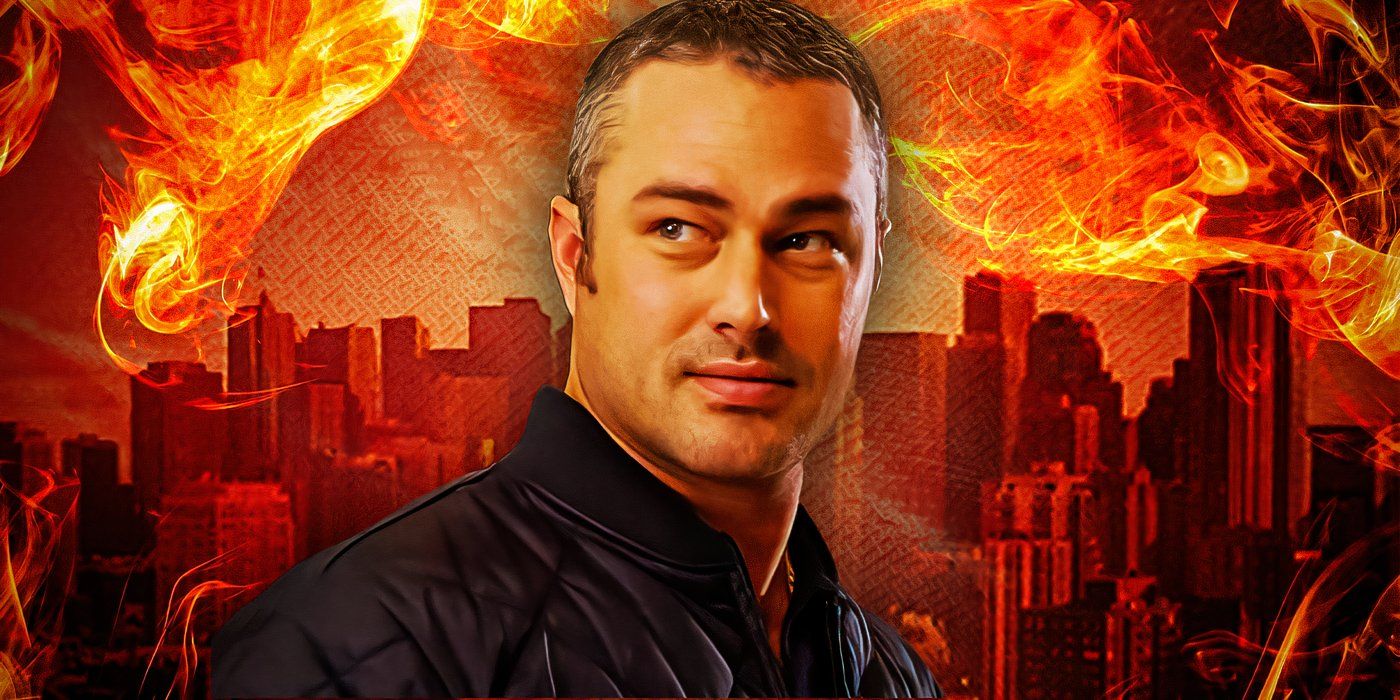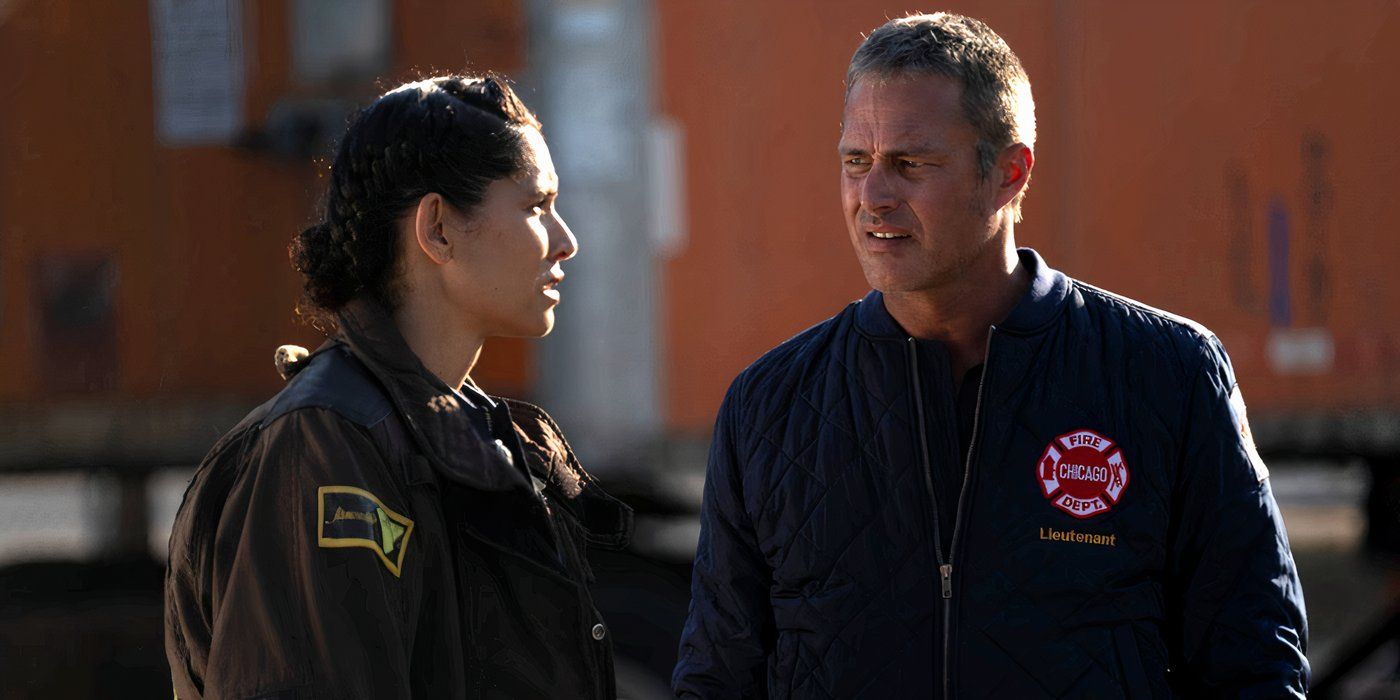In a twist no one saw coming, Chicago Fire delivers its most devastating emotional blow yet: Kelly Severide, the stoic pillar of Firehouse 51, is fighting a personal battle that may change everything. After years of leading rescue missions and risking his life for others, Severide is now facing a terrifying enemy from within—an undisclosed but serious illness that’s threatening to unravel the very core of his identity and his future.
News of Severide’s condition breaks like a thunderclap across Chicago, both within the firehouse and in the hearts of fans everywhere. This isn’t another on-the-job injury. This is deeper. More personal. More frightening. The kind of battle that no amount of training or experience can fully prepare someone for. And perhaps that’s what makes it hit so hard.

Severide, played with quiet strength and emotional intensity by Taylor Kinney, has always embodied resilience. From pulling civilians out of blazing infernos to holding his team together through tragedy, he’s been the man who doesn’t break. The one who carries the weight when others can’t. But now, as whispers of a devastating diagnosis emerge, it’s clear that even the strongest among us are not immune to life’s cruel turns.
The specifics of his illness remain vague for now—something the show is deliberately keeping under wraps—but the tone is ominous. The team is rattled. The leadership, shaken. Firehouse 51, long a symbol of unity and strength, is now shadowed by fear and uncertainty.
At the center of this emotional storm is Severide’s wife, Lieutenant Stella Kid. Having stood beside him through thick and thin, Stella is now facing her most painful challenge yet—not as a firefighter, but as a wife watching the love of her life suffer. Her composure in the firehouse barely hides the panic behind her eyes. And as she struggles to balance her own responsibilities with her worry for Kelly, the pressure threatens to overwhelm her.
But Stella, like Severide, is made of tougher stuff. Her love is unwavering, and so is her resolve. She’s not backing down. Not now. Not ever.
The ripple effect of Severide’s condition is felt everywhere. Boden, usually the unshakable foundation of the house, is quieter these days. Casey makes an unexpected return just to check in. Cruz, Brett, and Ritter all rally in their own ways—cooking meals, offering silent support, trying to fill the void of helplessness with action. Even Mouch has a hard time cracking a smile.
Because this isn’t just about Severide. It’s about the family they’ve built. And watching one of their own slip into a battle that no one can charge into and rescue him from is tearing them apart.
The show doesn’t shy away from the emotional weight. It leans into it—highlighting the raw humanity of these characters who are so often portrayed as invincible. There’s something profoundly humbling about watching a man who has saved dozens now have to rely on others. About seeing Severide, usually so guarded, begin to open up about his fear. About watching Stella whisper words of encouragement to him in the dead of night, even as tears wet her cheeks.
And it resonates beyond the screen. Because it’s real. Not in plot, but in impact. Everyone knows someone who’s battled illness. Everyone has felt the fear of losing someone strong. Severide’s story taps into that universal vulnerability. It’s a fictional mirror to our very real fragility.
But even in the midst of this crisis, there’s a spark of hope.
Because if there’s anything Severide has taught us, it’s that giving up isn’t in his vocabulary. Whether it’s climbing through smoke to rescue a trapped victim or facing down the demons of his past, he has always pushed forward. And this time, it’s no different. The man who helped so many others survive now has an army of friends—and fans—fighting for him.
The show is already teasing scenes of resilience and love: Stella organizing a quiet candlelight vigil at the firehouse, Cruz building a custom bench with Severide’s initials engraved, Boden offering late-night pep talks, and even Chief Hawkins making a rare visit to deliver words of admiration and support. Chicago isn’t just watching Severide fight. It’s fighting with him.

And that’s the heart of this story. Not just the fear or the tears—but the love. The unity. The refusal to let go. Because while this illness may threaten his body, it will never touch the legacy he’s built or the family he’s forged.
What comes next is uncertain. Will Severide recover? Will he step back from the field forever? Or will he defy the odds, once again, and walk back into that firehouse with the same steady strength that made him a legend?
Whatever the answer, one thing is certain: Firehouse 51 will never be the same. And neither will we.
Because now, it’s not just about the fight against flames. It’s about the fight for one man’s life—and the extraordinary love that surrounds him.
Is this the end of Kelly Severide’s era—or the beginning of his most inspiring comeback yet?